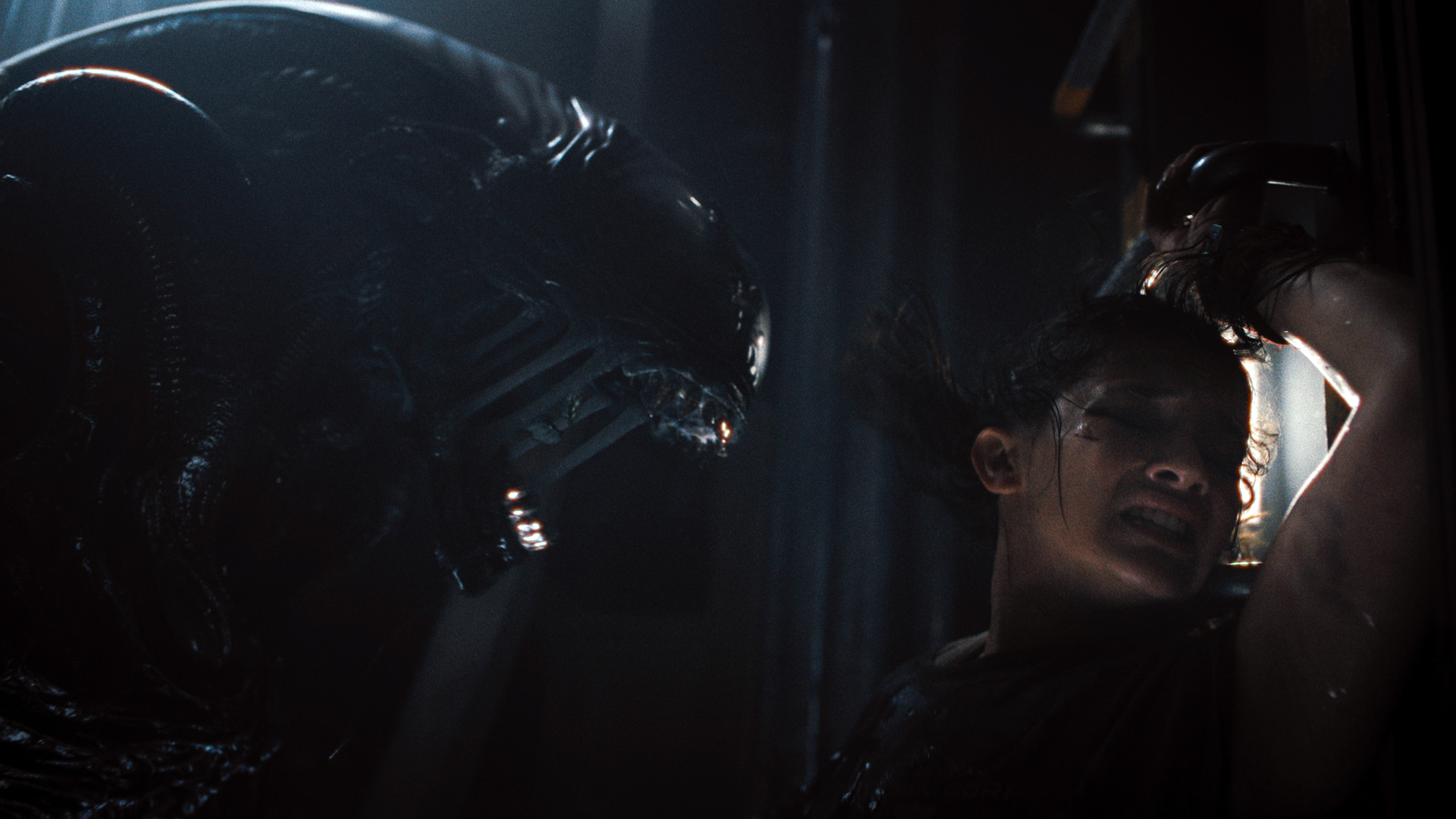
To say that the Alien franchise has failed to live up to its vast potential is an understatement. In the 40 years since Aliens, the critically-acclaimed 1986 sequel to its horrifying 1979 forebear Alien, debuted in theaters, the movie series has floundered more times than its iconic xenomorphs have been jettisoned into the never-ending void of space.
The lack of another critically-acclaimed sequel has not been for a lack of trying. Alien 3, David Fincher's feature-film directorial debut, and Alien Resurrection tried to do something different, but bombed at the box office. The abject Alien vs Predator crossover events, which saw the franchise's biomechanical killing machines battle another classic 80s monster icon, plus more recent entries like Prometheus and Alien: Covenant, haven't succeeded in revolutionizing the series, either.
Step forward Alien: Romulus, a nostalgia-fueled, standalone entry with a back-to-basics approach
And yet, like the H.R. Giger-designed monstrosities, the Alien franchise appears to be unkillable, which is good news for horror auteur Fede Álvarez. A diehard Alien fan, the Uruguayan filmmaker is the latest incumbent to try and deliver a much-needed shot in the arm to the flailing film series. Step forward Alien: Romulus, a nostalgia-fueled, standalone entry with a back-to-basics creative approach that, according to those crucial first critical reactions, might finally give the franchise its first great sequel since Aliens.
Creating a new chronology
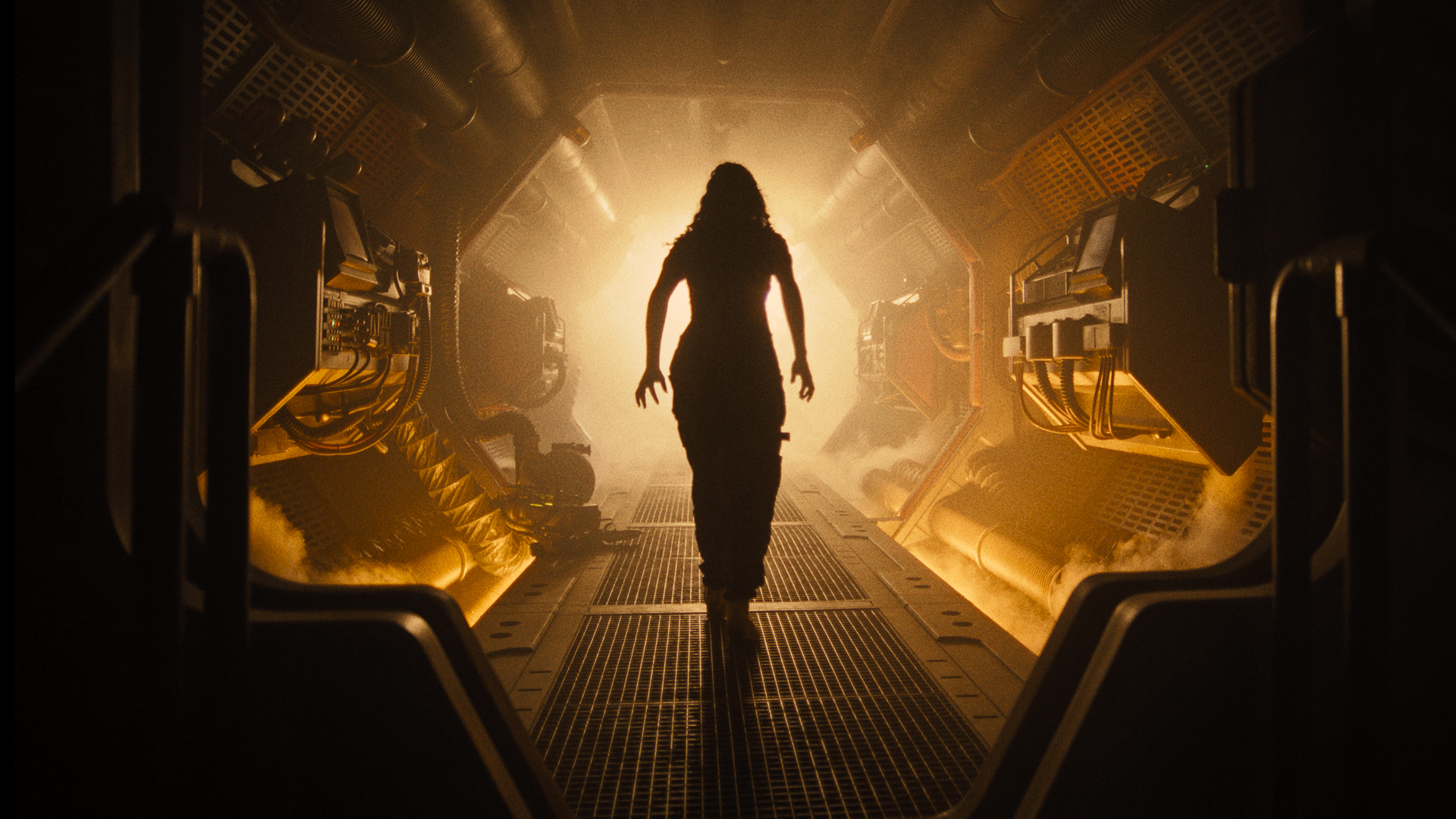
Set 20 years after Alien, which takes place in the year 2122, Alien: Romulus follows a group of disenfranchised young adult space colonizers – Rain (Cailee Spaeny), her android brother Andy (David Jonsson), and Rain's fellow humans Tyler (Archie Renaux), Kay (Isabela Merced), Bjorn (Spike Fearn), and Navarro (Aileen Wu) – who dream of escaping Jackson's Star, the mundane mining colony they were born into.
When an opportunity arises to explore The Renaissance, a derelict space station rich in resources that they can sell to fund their permanent departure from Jackson's Star, the group doesn't think twice about journeying to the manmade satellite. Little do they know, however, that they'll soon be fighting to survive against one of the universe's most frightening and dangerous lifeforms.
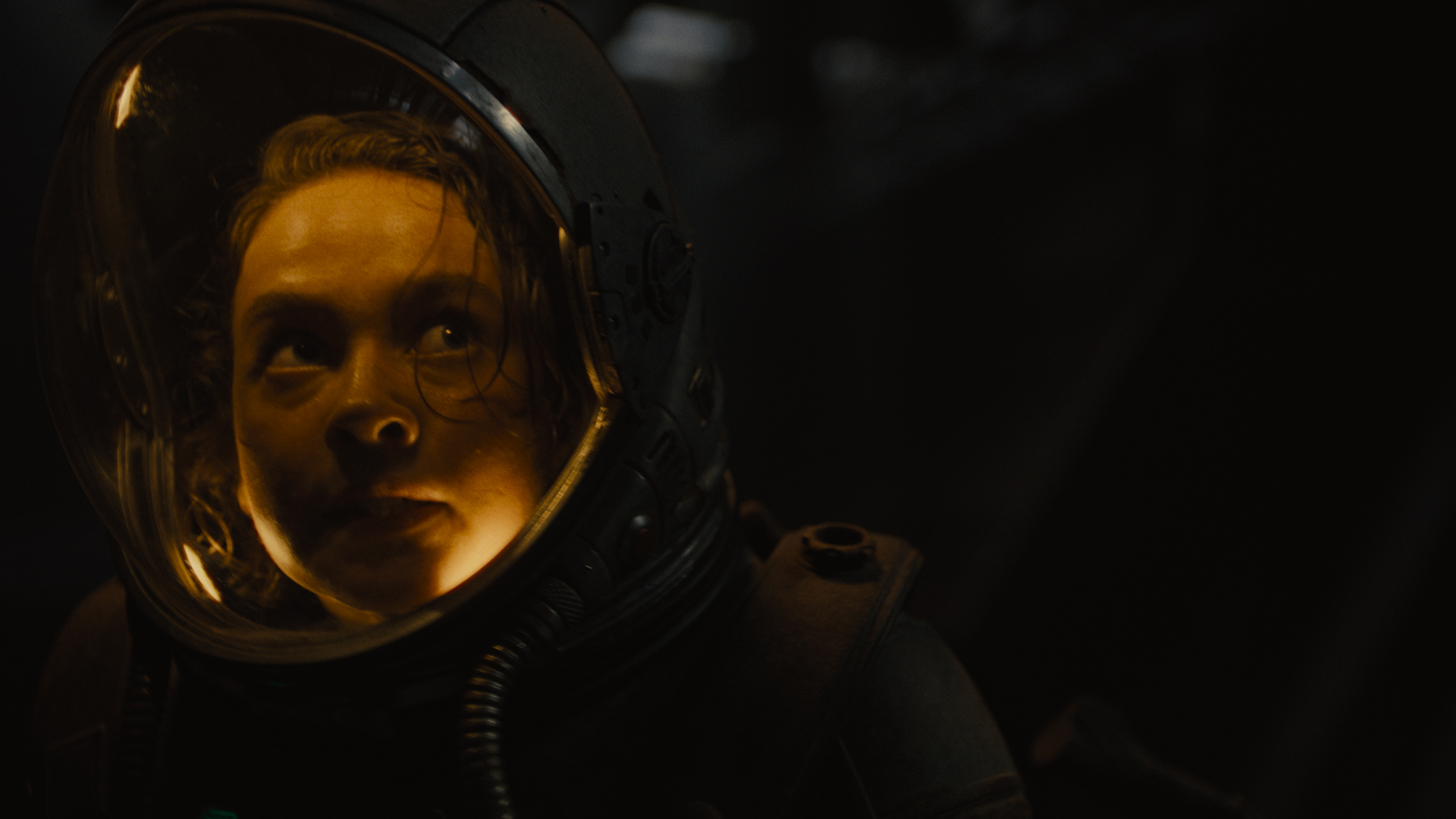
Romulus' position on the series' timeline – it's sandwiched between Alien and Aliens, i.e. the two best Alien movies – raised eyebrows upon its initial unveiling. Some cynical observers claimed that its chronological placement was intentional, with Alvarez and fellow co-writer Rodo Sayagues coyly tapping into fan sentimentality for the aforementioned duo, thereby creating a sense of positivity bias ahead of Romulus' release.
Stylistically, it was helpful to create a story and design sets that capture a bit of both worlds
Fede Álvarez, Alien: Romulus director
For his part, Alvarez readily admits that Romulus' timeline positioning is deliberate, but not for the reasons suggested by the doubters. Instead, it was not only about the story he and Sayagues wanted to tell, but also the opportunity to build some essential connective tissue between the films that Romulus is perched between.
Get daily insight, inspiration and deals in your inbox
Sign up for breaking news, reviews, opinion, top tech deals, and more.
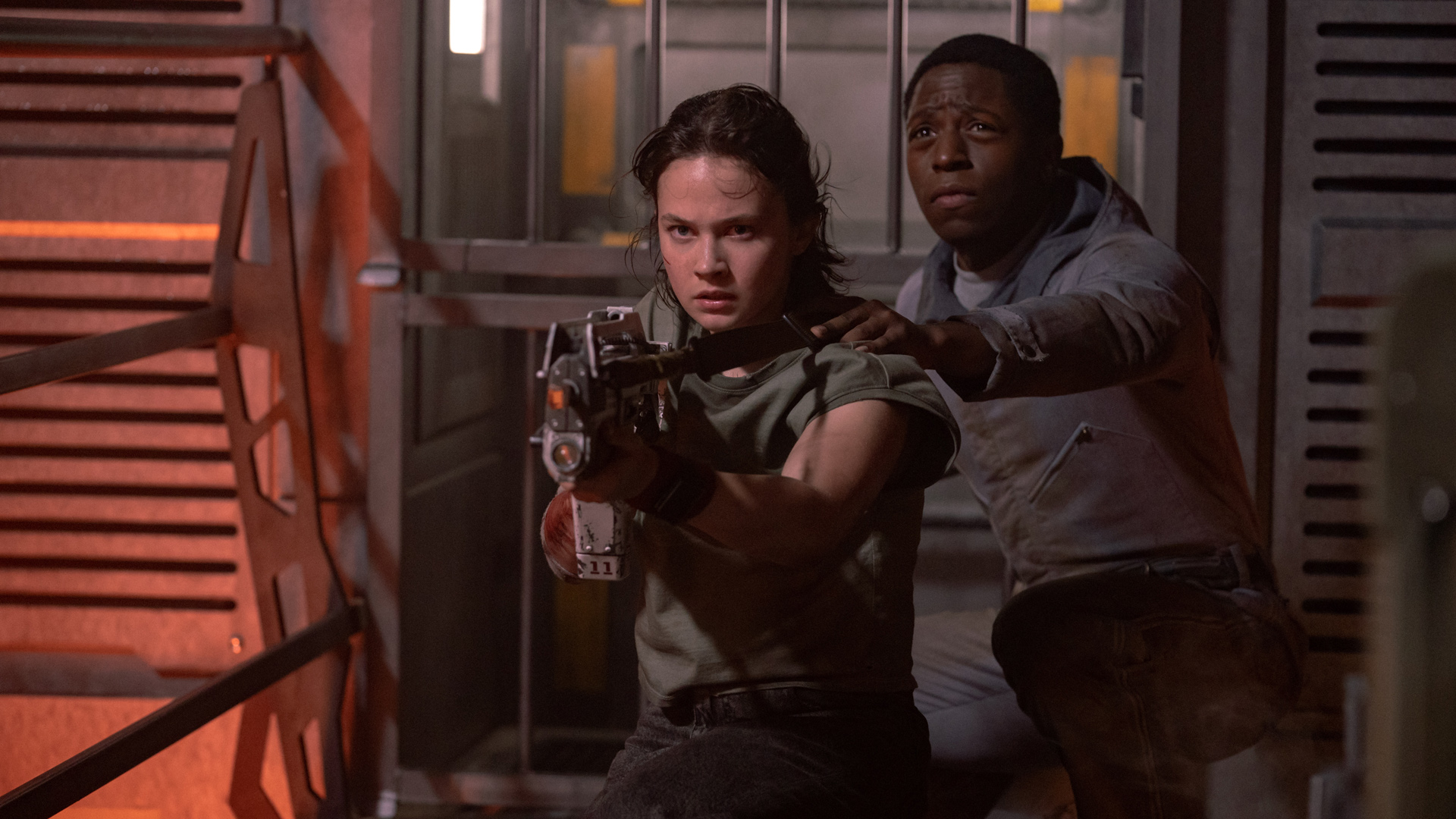
"There's a certain continuation of the first film that made it natural to happen a couple of decades after [Alien]", Alvarez tells me after a Romulus preview event in mid-June. "Stylistically, it was helpful to create a story and design sets that capture a bit of both worlds from those movies.
"You'll see things that remind you of Alien, which make sense because Weyland-Yutani's [the film series' antagonistic mega-corporation] technology won't have changed much between Alien and our film. But, you'll also see objects or technology that are precursors of what you see in Aliens. For instance, the Corbelan [the spaceship that the group use to travel to The Renaissance] is fitted with an atmosphere processor that's not exactly the same as the one in Aliens. It's an earlier model that's bulkier and more industrial, so we got to devolve some of the in-universe tech that allows us to straddle the time gap between the first two movies."
Back to the future
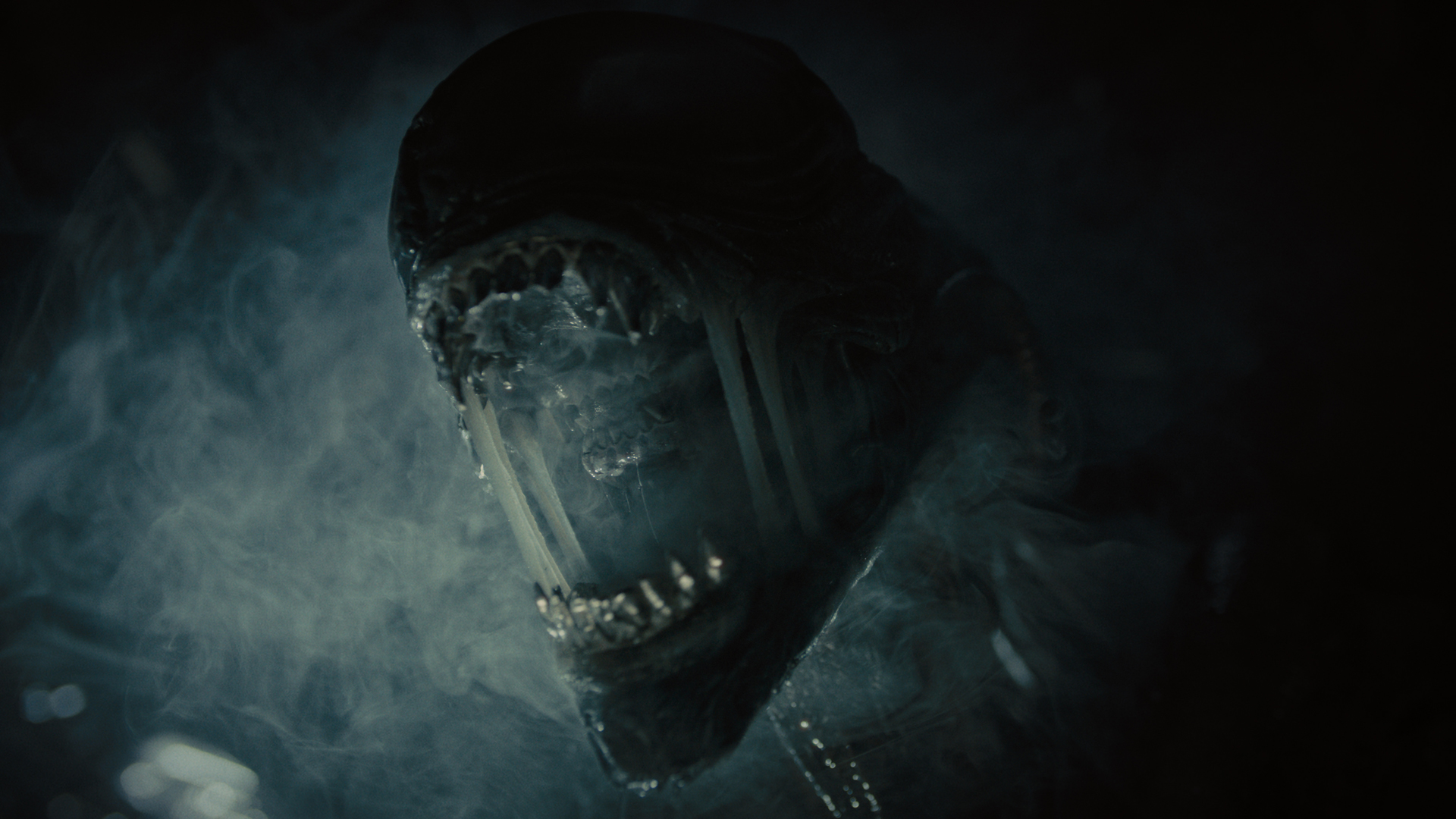
Alien: Romulus is the ninth and most recent addition to franchise that legendary filmmaker Ridley Scott created. Given its timeline placement, and in order to capture the visual essence and practical feel of the series' earlier entries, Alvarez and company went back to the beginning to reproduce the dread-inducing atmosphere, antiquated futuristic sets, and puppet-based xenomorphs that were utilized almost 50 years ago.
From bringing back individuals, such as effects supervisors Shane Mahan and Alec Gillis, who worked on Aliens' animatronic puppets, to designing The Renaissance's two modules – named Romulus and Remus after the mythological twins who reportedly founded Rome – to visually resemble sets from Alien and Aliens, no stone was left unturned in the pursuit of perfection.
Early tests for our animatronic Xeno, created by the amazing team at LegacyEffects. #AlienRomulus pic.twitter.com/pBnelUIekxAugust 12, 2024
Development on the 20th Century Studios film wasn't always plain sailing, though. Recent Alien films have faced problems ranging from studio interference, to struggles with transitioning between the xenomorph puppets and their CGI counterparts that have impacted audience immersion. Romulus was no different, with Alvarez revealing "every script page had a big challenge that we needed to figure out". With some advice he borrowed from multi-award-winning British director Christopher Nolan, though, Alvarez is confident that viewers won't be able to tell where Romulus' practical and visual effects begin and end, nor when they're seamlessly switched between.
You have to find a way to trick the audience
Fede Álvarez, Alien: Romulus director
"I remember Nolan saying 'You have to keep changing your technique throughout the movie and even individual shots,'" Alvarez says. "So you have to find a way to trick the audience so they don't know what's practical and what isn't. You have to find a way to fool the brain into not knowing what it's looking at, otherwise, if you commit to one thing, it becomes very easy to work out if something's a puppet or not. At the end of the day, moviemaking is all just a big illusion and you have to keep people engaged so they don't see through the facade."
A new dawn for the Alien franchise
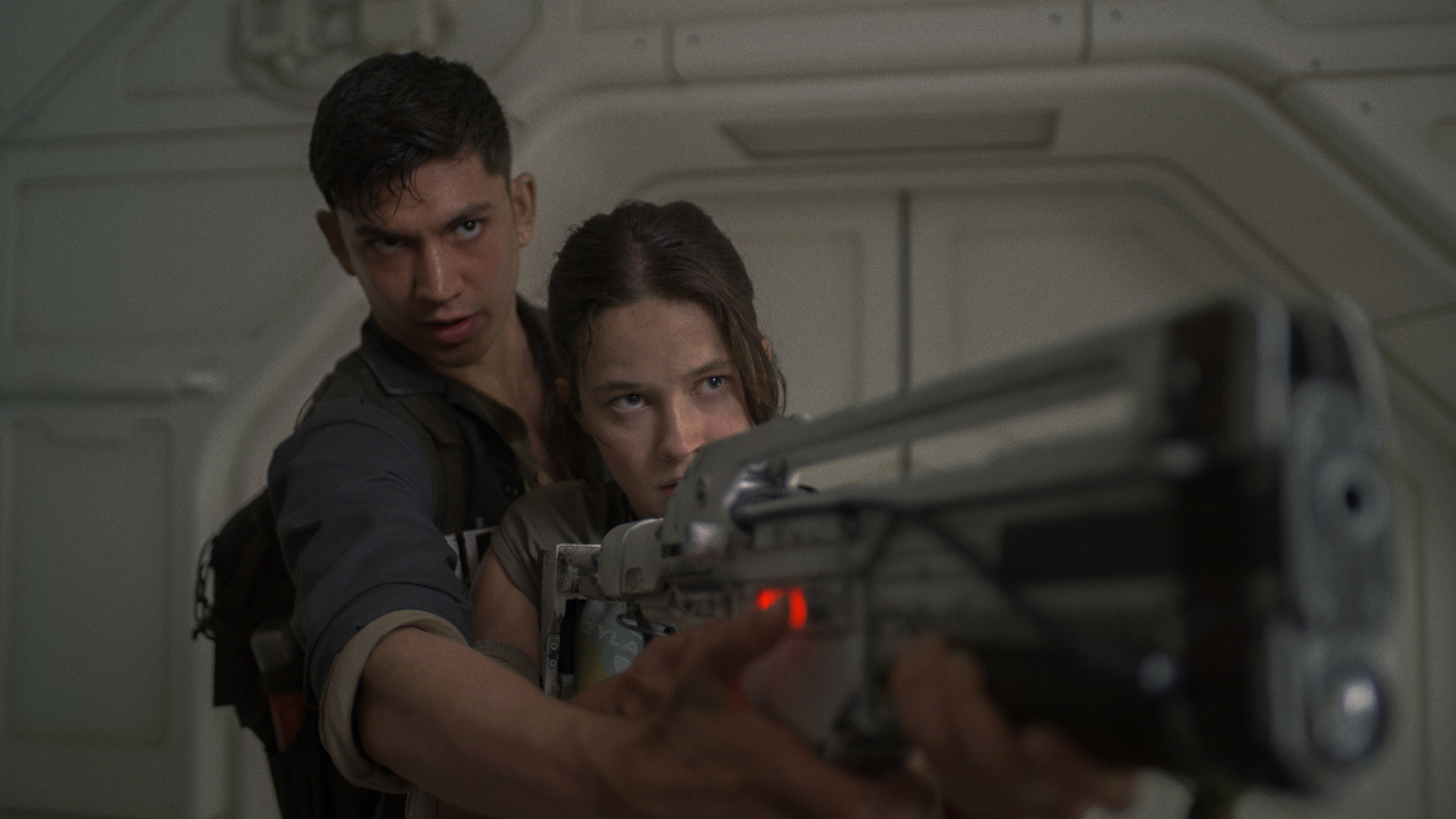
Alien: Romulus won't be the only Alien project faced with the challenge of rebuilding trust between the franchise and the general public. The first-ever Alien TV series, which is set to debut on Hulu (in the US) sometime in 2025 and has been created by Fargo's Noah Hawley, will continue to flesh out its sci-fi horror universe in new and unexpected ways. Indeed, the show – officially titled Alien: Earth, as confirmed by Hawley and production studio FX boss John Landgref in mid-July – will, unsurprisingly, bring the xenomorph threat to our very own corner of the cosmos.
Alien: Earth is set three decades before Alien, so its narrative won't run concurrent to what happens in Romulus. However, events that transpire in Alien: Earth, plus any new franchise lore it introduces, has the potential to impact or even contradict any fresh mythology that Romulus adds into the equation.
If we figure out a [sequel] story, we'll make sure everything is as canonical as possible
Fede Álvarez, Alien: Romulus director
With two Alien projects being developed simultaneously at different Disney-owned studios – the entertainment giant is the parent company of FX and 20th Century Studios – how did Alvarez and company navigate the potentially tricky situation of such a scenario playing out? Simply put: they didn't.
"No," Alvarez replies when I ask if he and Hawley sat down to discuss their individual project plans to ensure there was consistency between them. "Steve Asbell, who runs 20th Century Studios, worked with Ridley on Prometheus and Alien: Covenant, and he was always there to make sure [there were no contradictions between Romulus and Earth]. He's a true connoisseur and knows the franchise inside and out, so he's ensured there's no conflicting ideas. I haven't read the show's scripts, and I don't know what it's about, but I trust him to take care of that."
Time will tell if Alien: Romulus, one of 2024's most anticipated new movies, is as spine-tingling and blood-curling as I hope it'll be, but the initial signs are positive. As I mentioned earlier, early reactions have been universally positive, but those all-important reviews – at the time of writing, none are currently live – will prove whether it's as scarily epic as many people suggest.
For now, Alvarez isn't concerning himself with possible sequel plans – "If we figure out a story, we'll make sure everything is as canonical as possible", he simply teases. If this so-called "futuristic period piece" serves up a frightening treat for established fans and newcomers alike, though, Alien: Earth notwithstanding, you can be sure this isn't the last time that the Alien franchise will wrap us in the chilling embrace of a horrifying face hug.
Alien: Romulus launches exclusively in theaters worldwide on August 16.
As TechRadar's senior entertainment reporter, Tom covers all of the latest movies, TV shows, and streaming service news that you need to know about. You'll regularly find him writing about the Marvel Cinematic Universe, Star Wars, Netflix, Prime Video, Disney Plus, and many other topics of interest.
An NCTJ-accredited journalist, Tom also writes reviews, analytical articles, opinion pieces, and interview-led features on the biggest franchises, actors, directors and other industry leaders. You may see his quotes pop up in the odd official Marvel Studios video, too, such as this Moon Knight TV spot.
Away from work, Tom can be found checking out the latest video games, immersing himself in his favorite sporting pastime of football, reading the many unread books on his shelf, staying fit at the gym, and petting every dog he comes across. Got a scoop, interesting story, or an intriguing angle on the latest news in entertainment? Feel free to drop him a line.
